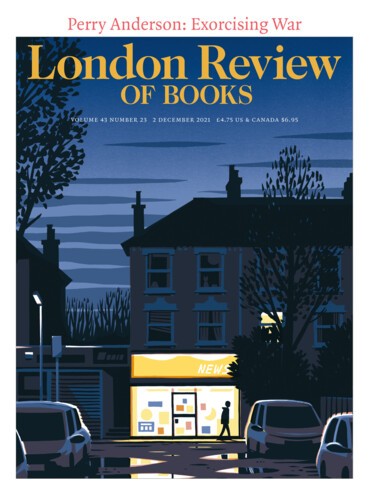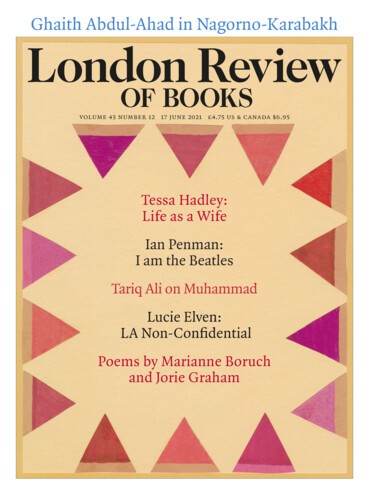The food system in Gaza has collapsed completely. The health system has collapsed. Basic infrastructure for clean water and sanitation has collapsed. According to the Famine Review Committee, the people of Gaza are facing a real prospect of famine: without immediate action, mass mortality from hunger or disease outbreaks is looming.
Alex de Waal
Alex de Waal is director of the World Peace Foundation. Mass Starvation: The History and Future of Famine was published in 2017.
The Revolution No One Wanted: War in Khartoum
Alex de Waal, 18 May 2023
Sudan’s capital, Khartoum, is being destroyed in a fight to the death between two venal, brutal generals. This is a war of choice; allowing it to happen was a failure of international diplomacy. But if we look at the city’s 200-year history, the fighting shouldn’t be a surprise. Khartoum was founded on a command post built for the purposes of imperial robbery – and...
Lab Leaks
Alex de Waal, 2 December 2021
Normal accident theory, developed by the sociologist Charles Perrow in the 1980s, predicts that sooner or later there will be a devastating accident with a nuclear weapon. The list of near misses is terrifying. In Command and Control (2013), Eric Schlosser compiled a minute by minute account of an accident involving a Titan II nuclear missile based at Damascus, Arkansas in September 1980....
Steal, Burn, Rape, Kill: Famine in Tigray
Alex de Waal, 17 June 2021
In Tigray in northern Ethiopia a famine is unfolding in the dark. Reporters and aid workers have been unable to access large parts of the region since war broke out in November. Satellite imagery and aerial photographs have shown that only a fraction of the land was ploughed in preparation for the summer rains. Children are dying of hunger. When villagers are spotted by Eritrean or Ethiopian soldiers they are told: ‘You won’t plough, you won’t harvest, you won’t get any aid. We’ll punish you if you try.’ Some news reaches me by phone. I recently spoke to a Tigrayan colleague who had experienced a previous famine. The elders in his village were saying that the situation now was as bad as it had been in the worst months of the 1980s. Even if a massive aid effort gets underway and the Ethiopian prime minister, Abiy Ahmed, allows international agencies to reach people in need, it’s already too late for tens of thousands of Tigrayans, most of them children. Two months ago, aid agencies completed spot surveys of villages they could access and reported malnutrition of between 27 and 33 per cent among children under five.
During his last years in office, Bashir used his formidable political talents simply to stay in power, and did nothing for the country. Anti-government protests erupted last December, first against the high prices of bread and fuel, and then against Bashir’s endless rule and the corruption that accompanied it. Despite weekly demonstrations in Khartoum and other cities, Bashir imagined he could outlast the protesters. He thought they lacked leadership and would be easily divided, bought off or demoralised. He was wrong. On 6 April the biggest ever crowds surrounded the Ministry of Defence and military HQ, and refused to disperse.
Pieces about Alex de Waal in the LRB
The Spoils of Humanitarianism: Feeding off Famine
Karl Maier, 19 February 1998
Hundreds of thousands, perhaps millions of people in North Korea are succumbing to starvation, perishing ‘silently and painfully’ in the words of an aid agency official. Eighty-five...
Read anywhere with the London Review of Books app, available now from the App Store for Apple devices, Google Play for Android devices and Amazon for your Kindle Fire.
Sign up to our newsletter
For highlights from the latest issue, our archive and the blog, as well as news, events and exclusive promotions.




